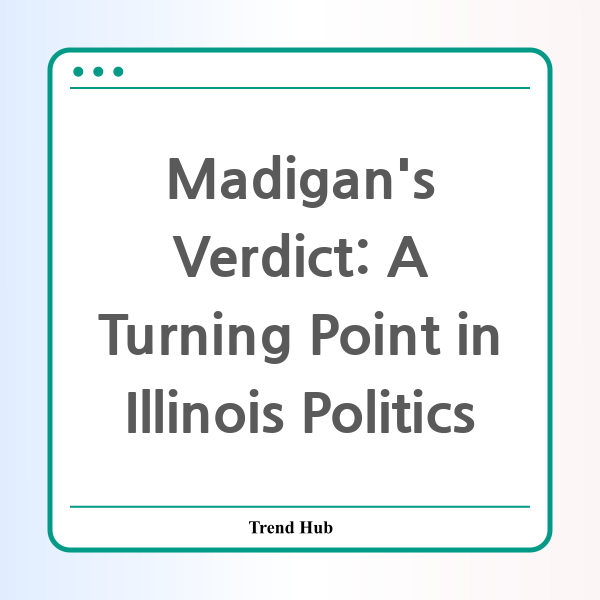* This website participates in the Amazon Affiliate Program and earns from qualifying purchases.

The recent verdict against Michael Madigan has sent shockwaves through Illinois politics. But what does this mean for the future of governance in the state?
Former Illinois House Speaker Michael Madigan, once hailed as the most powerful politician in Illinois history, has been convicted on 10 counts of bribery and wire fraud. This verdict is not just a legal decision; it marks a potential watershed moment in the realm of political accountability in Illinois. For decades, Madigan's influence loomed large over the state's political landscape, but now, with his conviction, we must consider the implications of his actions and the changes that may follow in the governance of our state.
Madigan's conviction is historic, hailed by the acting U.S. Attorney as one of the most significant trials in the state's political history. As jurors delivered their partial verdict after lengthy deliberations that spanned over 11 days, they condemned Madigan's long-standing abuse of power. The gravity of the situation was not lost on local politicians and advocacy groups, who quickly called for reform and accountability.
State Representative Kelly Cassidy emphasized the importance of this verdict, stating, "That there will be some measure of accountability for the decades of abuse of power and corruption is critically important and will have implications for our state government for generations." This sentiment reflects a growing demand for more transparent practices in Illinois government.
Governor JB Pritzker also commented on the verdict, indicating that it sends a powerful message: "If you choose corruption, you will be found out, and you will be punished." Such statements suggest a shift towards a more stringent approach to governance and ethics in public service.
This conviction should serve as a wake-up call for policymakers in Illinois. While the Madigan saga may seem like a dramatic conclusion, it opens the door for essential discussions about ethics in government. The Better Government Association’s CEO, David Greising, expressed a crucial point: "Now it is time for the state Legislature to take note and act boldly where they so far have been timid: Preventing future corruption by enacting ethics reforms that are long overdue." This call for reform mirrors a growing public sentiment demanding more ethical governance.
As Illinois moves forward from this verdict, several questions remain: Will lawmakers take the necessary steps to implement ethics reforms? Can trust in public officials be restored, or is the damage beyond repair? These are critical questions that will shape the future of governance in Illinois.
The fallout from the Madigan trial is far from over. An appeal is expected, indicating that the legal battles may continue well into the future. However, regardless of the outcome of any appeal, the conversation around ethics, accountability, and transparency in government has been ignited.
In conclusion, Michael Madigan's conviction is more than just a moment of legal accountability; it is an opportunity for Illinois to reassess its political values and make significant changes that could set new standards for future governance. The actions of Madigan should serve as a cautionary tale for all public officials—corruption will not be tolerated, and the people of Illinois demand better.
* This website participates in the Amazon Affiliate Program and earns from qualifying purchases.